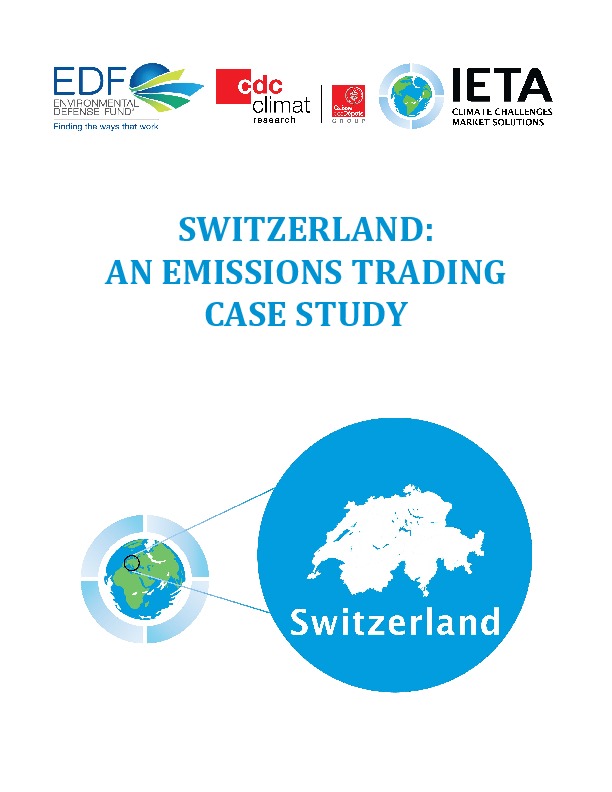Switzerland : A case study on emissions trading
The Swiss ETS has been operational since 2008 and is currently in the process of negotiating a link with the EU ETS.
Published in May 2015 by I4CE together with the International Emissions Trading Association (IETA) and the Environmental Defense Fund (EDF).
